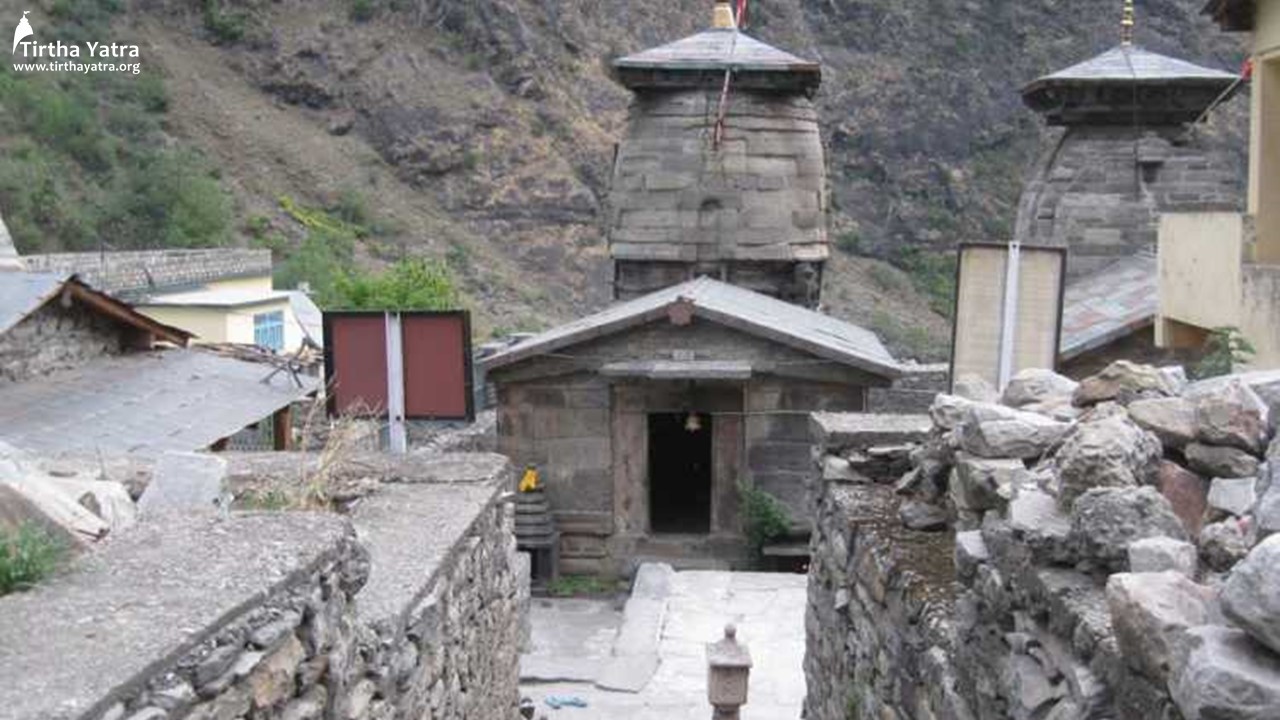
Pandukeshwar is closely related to Badrinath as the utsava vigraha of Lord Badri Vishal is worshiped in this temple during the winter times when the doors of Lord Badri Vishal are closed. Pandukeshwar is one of the Sapta Badri Kshetras in Uttarakhand.
Pandukeshwar is a sacred town in the Chamoli district in the Indian state of Uttarakhand. It is situated at an altitude of 1857 meters above the sea level and located at 22 Kms from Badrinath. The sacred town can be visited enroute Badrinath.
Why is it named as Pandukeshwar?
One day Pandu went on hunting and unintentionally killed a sage while the sage was in privacy with his wife incognito in the form of a deer. While dying, the sage cursed Pandu that he will not be able to have sex with his wives. If he did so, he would die instantly. Hearing this, Pandu gave away his throne to his elder brother Dhritarashtra and decided to live in the forest by performing tapasya.
Maharaj Pandu and his wives Kunti and Madri lived in Pandukeshwar in the Gandhamadana region of the Himalayas. Like this way Pandukeshwar was established by King Pandu, the father of Pandavas.
To get cleansed of the sin of killing a sage, Pandu installed the Deity of Lord Vishnu in Pandukeshwar and performed austerities. This Deity is also named as Yogadhyan Badri. Meanwhile Kunti and Madri gave birth to Pandavas at Pandukeshwar.
The birth of Pandavas at Pandukeshwar
When Pandu went for hunting, he happened to come upon a large deer that was sexually united with its mate. Being addicted to hunting, Pandu pierced the male deer with five arrows. As the deer fell to the ground, it cried out in pain, just like a human being.
In fact, as Pandu approached it the dying deer reproached him, saying. “wicked king, how have you learned such cruel and abominable behaviour?”
Pandu harshly replied, “Foolish creature, you must know that kshatriyas kill deer without any moral consideration. Why are you finding fault in me?”
The deer (Sage) said, “I am not criticising you for the act of killing a deer, but for killing me as I was engaged in enjoying sexual intercourse, which is so agreeable to all living creatures.”
“O King, I am not actually a deer. I am the Sage Kindama. I was enjoying with my wife in the form of a deer because I felt too modest to indulge in sexual intercourse in the human form. Because you have been so cruel as to kill me as I was relishing this most pleasurable moment, I hereby curse you. The next time you approach your wife under the influence of sexual desire, you will also die, and your wife will follow you by ascending the funeral pyre. After saying this, the sage gave up his life.”
When Pandu informed his wives of what had taken place, they all wept bitterly, being plunged into an ocean of despair. While remembering how his mother’s husband Vicitravirya, had also perished due to being too lusty, Pandu began condemning his passionate nature. Indeed, he made up his mind to renounce material life and attain salvation by living a life of strict brahmacarya.
While coming to this conclusion, Pandu announced, “I will shave my head and give up all connection with my wives. Becoming completely indifferent to all material conditions, I will maintain myself by begging and always act for the welfare of all living entities.”
When Kunti and Madri heard Pandu say this, they tearfully begged him to allow them to accompany him in his life of austerity.
At last, Pandu agreed that they could remain with him as he lived the life of strict vanaprastha. First, he gave all his ornaments to the brahmanas and then sent his attendants to Hastinapura to inform his relatives of his intention.
When Dhritarashtra heard about how Pandu had been cursed and had subsequently resolved to lead a life of austerity, he wept bitterly out of brotherly affection.
Factually, there was nothing lamentable about Pandu’s being cursed and his subsequent detachment from material life, because by living a life of austerity he attained the prowess of a Brahma rishi. Indeed, because of his rigid vows, Pandu became the beloved favourite of all the sages, Charanas and Siddhas that resided in the surrounding forest.
One day thereafter, the sages assembled for the purpose of embarking on a journey to Brahmaloka, where a meeting of all the demigods and great sages was being held. When Pandu learned of this, he wanted to accompany the sages, as did his wives. But, when the sages learned of Pandu’s intention, they warned him that while ascending the Himalayas they would come to celestial regions and encounter barren and snowbound places that were accessible only for elevated sages and Siddhas. In this way the sages urged Pandu to give up his intention, and they further warned him that his wives would surely not survive the journey.
In reply, Pandu gave vent to his real grief, saying, “O sages, because I do not have a son, after death I will surely perish, along with all my ancestors. I have already fulfilled three kinds sacrifices. I have satisfied the sages by practising austerities and meditation, and by studying the vedas. And, I have repaid the living beings in general by living a moral and inoffensive life. However, since I have not fulfilled my obligation to my forefathers by begetting a son, my access to the heavenly regions has surely become blocked.”
“My dear sages, just as Vyasadeva was invited to beget children upon my mother, I request you to arrange that my wives may also bear sons.”
Sages assured Pandu that he would have exalted sons, and they encouraged him to summon a suitable person for that purpose.
He ordered Kunti to beget children by having connection with another man whom she considered to be his equal, or superior.
Kunti replied, “I shall never be willing to accept the embraces of another man.”
Pandu said, “My dear Kunti, formerly women roamed about freely, enjoying themselves as they pleased. They were not confined to the house, nor were they dependent upon a husband or any other relative. And yet, although women did not remain faithful to a particular man, this was not considered sinful, just as it is in the society of birds and animals. Previously, this was the standard of morality and it was sanctioned by the great sages. Indeed, even now such behaviour is prevalent amongst the women of the Northern Kurus. In fact, the practice of having women confined to just one husband has only been recently introduced.”
My dear Kunti-devi, just remember how Saudasa ordered his wife, Madayanti, to engage in sexual intercourse with the great sage, Vasistha, and thus Asmaka was born. Even my own birth was only made possible because my mother agreed to have union with Vyasadeva. Therefore, you should follow my instructions and beget children by having connection with some superior personality. Kunti could see that her husband was determined to convince her to have children by inviting someone to impregnate her.
Thus, she finally decided to disclose an incident from her youth that she had always very carefully kept secret. My dear husband, before our marriage, my stepfather, Kuntibhoja engaged me in providing hospitality to his brahmana guest. Once, Durvasa Muni came to our palace and when he became greatly pleased because of my selfless service he awarded me a mantra whereby I can call for any demigod to beget a child. Therefore, my lord, if I must have children by someone other than you, I suggest that I call for one of the principle demigods.
Pandu desired to have a very virtuous son and so as Kunti awaited his command.
Pandu replied, “This is an excellent proposal! If you can do so, then I would like you to summon Dharmaraja, the lord of justice.”
Kunti called for Yamaraja, requesting him to give her a son. Thereafter, when Kunti’s baby was born, a voice from the sky announced: This child shall be named Yudhisthira. He will become the most virtuous of all persons and he will rule the entire earth as its emperor. Gandhari’s conception had progressed one year when Kunti called Yamaraja.”
Sometime later, Pandu requested Kunti to beget a child of superior strength.
Kunti called for the wind-god, Vayu. By the strength of the mantra that Durvasa had given to her, Vayu appeared before Kunti. She requested, “O lord, please give me a son who is so superior in stature and prowess that he will be able to humble the pride of everyone.”
Vayu gave him consent and thereafter, when Kunti’s baby was born, a voice from the sky proclaimed: This child will be named Bhima. He will be the foremost of persons endowed with superhuman strength.
One day soon thereafter, Kunti fearfully jumped up from her seat after seeing a tiger nearby. Because she had forgotten that her new-born child was lying asleep on her lap, when she got up the baby fell upon the rocky mountain peak where she had been seated. Astonishingly, even though Bhima’s body wasn’t even slightly bruised, the big rock upon which he fell shattered into a hundred pieces.
After some time, he desired to have a child that would become exceptionally famous and capable of vanquishing all others on the battle field. Considering Indra to be the proper father of such a child, he became determined to perform austerities to please the king of heaven. Pandu ordered Kunti to observe an auspicious vow for a year and he began standing on one leg, from morning to evening. Finally, after a long time had passed.
Lord Indra appeared before Pandu and announced, “O descendent of Bharata, rest assure that your austerities will bear fruit. By my grace you will obtain a greatly celebrated son who will be unconquerable in battle.”
Pandu then ordered Kunti to invoke Indra by the chanting of her mantra.
Kunti then invoked Indra and thus it came to be that Arjuna was born. Once again, a celestial voice described to Kunti her son’s glories, as well as some of his future heroic pastimes. As the celestial messenger spoke, flowers rained down upon the mother and her child. Then a host of celestial sages and demigods came before Kunti to offer her prayers. Upon witnessing all this, the neighbouring sages became highly astonished so that they wondered much about the influence of Kunti’s sons.
Later, desiring to have more children, he again requested Kunti to involve one of the chief demigods.
However, when a woman has intimate relations with five men or more, then she certainly comes to be known as a prostitute.
Soon thereafter, Madri approached Pandu in private and expressed her great sorrow. With tears in her eyes, she said, “My lord, although both Kunti and I are your wives, she has received three sons whereas I have none. In a sense, Kunti is my rival and so I am ashamed to ask her for the mantra that Durvasa Muni gave her. But if you were to approach her on my behalf, then I could also have the opportunity of begetting sons.”
Pandu replied, “For a long time I have also wished that you would have some children by calling the demigods. It was only because I did not know your mind that I hesitated to make this suggestion. Now that you have expressed your desire to me, I will request Kunti to share the mantra with you.”
Pandu went to Kunti and asked her to allow Madri to invoke the demigod of her choice with the help of her mantra.
Kunti cheerfully agreed. She then went to Madri and said, “Just think of a demigod and then chant, along with me, the mantra that I will now recite to you. In this way you will be able to receive a child that resembles his celestial father.”
Madri carefully reflected for a few moments and then meditated upon the twin Asvini-kumaras. Without delay, the heavenly physicians appeared before Madri and after each had impregnated her, they disappeared. In due course of time, when the twins Nakula and Sahadeva were born, a celestial voice proclaimed their future glories.
Yudhisthira, Bhima Arjuna, Nakula and Sahadeva were born at one-year intervals, and each time the local sages performed the birth and name-giving ceremonies. All five brothers possessed beauty and because of this, they soon became the favourites of all the neighbouring sages and their wives.
After some time, Pandu once again approached Kunti and requested her to allow Madri to have another child.
This time she refused, saying, “Before, when I helped Madri, she deceived me by calling for two demigods at once. Now, if I again give her the opportunity, she may try to surpass me by having more sons. My dear husband, I beg you to please not ask me this again.”
Pandu was very pleased with Kunti for what she had already done and so he agreed to give up the aspiration to have more children.
Thereafter, the spring season arrived, which is so delightful for all living beings. On one especially pleasant day, Pandu took the opportunity to enjoy wandering throughout the charming forest in the company of Madri.
The trees were filled with all varieties of fruit and a dazzling array of multi-coloured flowers. The singing of the birds captivated the ears of all that heard them, and the warm sunshine was wonderfully agreeable to the sense of touch. There were gentle fragrant breeze blowing through the flower-resplendent trees and in this heavenly atmosphere, Pandu could not help but enjoy beholding his beautiful, youthful wife.
Madri was dressed in semi-transparent cloth, making her feminine features distinctly visible so that as Pandu appreciated her loveliness, the desire for sensual enjoyment flared up prominently within his heart.
Pandu soon became overpowered by a strong sexual urge and under its influence he forcibly caught hold of Madri, drawing her close to him.
While trembling with fear, she tried to restrain her husband to the best of her ability. But he pressed her tightly in his arms. Having completely forgotten about the sage’s curse, Pandu appeared to be seeking Madri’s embraces with the desire to end his life. Then, as soon as the great Kuru hero united with his wife in sexual intercourse, he died.
While clasping Pandu’s lifeless body in her arms, she began to weep loudly so that Kunti and the children soon came running to the spot. When Madri saw them approach, she told Kunti to leave the boys at a distance. Then, when Kunti came forward, she was shocked to see the lifeless body of her husband.
Becoming almost mad with grief, Kunti exclaimed, “Wretched woman! how could you dare to tempt Pandu with sexual allurements, knowing that such behaviour would become the cause of his death?”
Madri tearfully replied, “O Kunti, do not speak like this! Quite the contrary, I had resisted Pandu to the best of my ability. Suddenly, he seized me with great passion and there was nothing I could do to stop him.”
Hearing this, she became somewhat pacified and said, “As the elder wife, I shall now follow my husband by ascending his funeral pyre. You can remain here in this miserable world to raise our fatherless children.”
Madri said, “Because Pandu was trying to unite with me but then died before either of us was gratified; I should be the one to follow him, so that I can satisfy his desire, wherever he may be.”
“O Kunti, I do not feel capable of raising your children, as well as my own. I beg that you allow me to ascend the funeral pyre.”
Thus, it came to be that when Pandu’s body was cremated, Madri followed her husband by entering the fire, whereas Kunti stayed behind to bring up the children. After the completion of the funeral ceremonies.
The sages consulted one another and then decided that it was their duty to take Kunti and the five Pandavas to Hastinapura so that they could be placed under the care of Bhisma and Dhritarashtra.
Yogadhyan Badri Temple
The Yogadhyan Badri deity in the main sanctum sanctorum of the temple is claimed by the priests to be a self-styled Deity provided by Lord Indra himself. The metal statue of the Yoga Narayan (Vishnu) is Chaturbhuja, seated in the Padmasana posture on the Vishwapadmapar. The lower hands are in the Yoga mudra and the upper hands are holding Shankha and Chakra respectively.
The metal statue of Lakshmi Narayana on the left side and the metal statues of Draupadi, Bhudevi, Sri Devi on the right side are seen. The period on which the article is engraved belongs to King Akbar period.
In the winter, when Badrinath Dham is closed for the devotees, then the worship of Badrinath’s utsavar vigraha, is worshipped in the Yogadhyan Badri temple of Pandukeshwar. A day before the opening of the Shri Badrinath’s doors, the Utsava deity is taken from this temple. In Yogadhyan Badri Dham, throughout the year pooja is performed.
The temple’s architecture
The Yogadhyan Badri temple and the Sri Vasudev temple are in Pandukeshwar village, which are unique not only in northern India but in the entire Himalayan region, because of their unique architectural style. The domes of the Yogadhyan Badri temple are linked to the Buddhist architecture. They are like replication of the stupas. The Yogadhyan Badri temple is built-in North Indian Nagara style. According to all the Shilpathis, the ‘Amalak’ at the top is the essential feature and is covered by a wooden canopy. The construction of this shrine is pre-medieval 9th century to mid-century AD.
Four copper letters of the Katayuri dynasty were received by the British authorities at the Yogadhyan Badri temple in Pandukeshwar. The priests used to show the pilgrims due to the lack of understanding of these copper letters. Two of these copper letters are of Lalitashurdeva, one of Padmatta Dev and one of Subhiksharaj Dev. Their language is written in Pali letters in Sanskrit. It is known that these Tamrapatras were written by the kings at different times and dedicated to the Shri Badrinath temple. In these villages, the kings have donated the village, many plots, lands and these donation descriptions were described in these copper sheets. In addition, several administrative units and places located in Kartikeyapur state are also mentioned in these copper sheets. Presently all the copper sheets are safe with Sri Badrinath, Kedarnath temple Committee.
Vasudeva Temple
Vasudeva temple architectural design is somewhat different from that of the Yogabadri temple. In the sanctum sanctorum of Vasudeva temple, the deity of Lord Janardhana is seen which is an excellent treasury of art. The stone statue of Ghantakarna is also revered in the sanctum sanctorum.
Important Places to Visit
Pandushila
It is said to be the playground of Kumar Karthikeya.
How to Reach Pandukeshwar
By Air
Jolly Grant Airport (Dehradun) is the nearest airport to reach Pandukeshwar at 287 km. It is well connected to all the major airports of India. Taxis can be taken from the airport to Pandukeshwar.
By Rail
Rishikesh Railway Station is the nearest Railway Station to reach Pandukeshwar at 270 km. Rishikesh is well connected by rail network with major destinations of India. Taxis, private and state buses are available at the Rishikesh Railway Station to reach Pandukeshwar.
By Road
It is located on NH 07. It is well connected by motorable roads with many cities of Uttarakhand state and other cities of India. Buses to Pandukeshwar are available from Dehradun at regular intervals. Buses and taxis are accessible from major towns like Rishikesh, Srinagar, Haridwar, Dehradun, Rudraprayag, Uttarkashi and Joshimath.
Best time to visit Pandukeshwar
Pandukeshwar is open all round the year. The best time to visit Pandukeshwar is from April to June and September to November. The region receives higher rainfall and somehow results in the blockage of roads due to landslides.
References
Kedar Khand by Hema Uniyal
Mahabharata Narrated by Purnaprajna Dasa
0

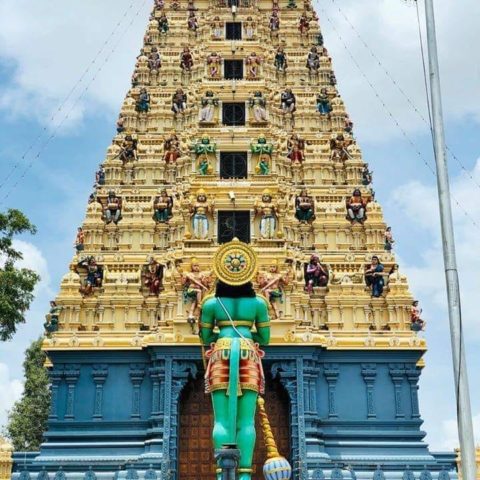
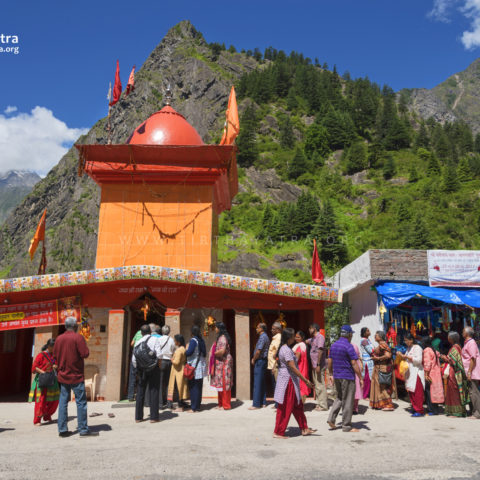
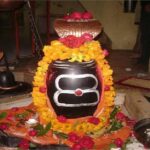
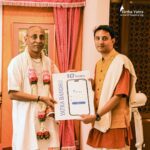

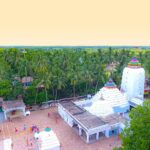
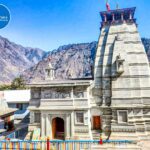
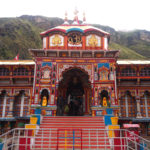
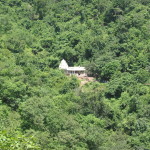
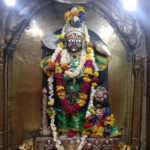
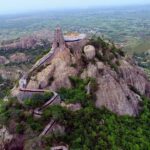
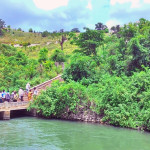
Leave a Reply